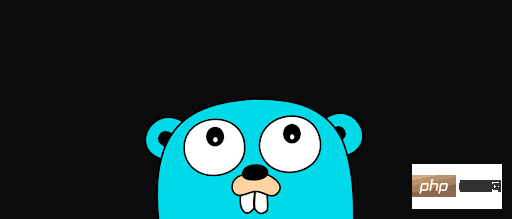Home >Backend Development >Golang >Parsing polymorphism in Go - no interfaces required
Parsing polymorphism in Go - no interfaces required
- 藏色散人forward
- 2020-12-10 13:49:511983browse
The following column will introduce you to polymorphism in Parsing polymorphism in Go - no interfaces required from the golang tutorial column - no interfaces are required, I hope it will be helpful to friends in need!

What if you want to use polymorphism in Parsing polymorphism in Go - no interfaces required, but don't like interfaces? Read on...
First, let's see what we want to do:
var dog, duck *Animal
dog = NewDog("fido")
duck = NewDuck("donald")
fmt.Println(dog.makeNoise())
// fido says woof!
fmt.Println(duck.makeNoise())
// donald says quack!
dog and duck have the same type ( *Animal). Each variable is instantiated using a different constructor, and they have different behaviors when makeNoisethe same method is called.
Usually, this example is the purpose for us to use the interface, but we don't want the actual use to be so simple.
Let’s see how to make this work:
Please click here (https://play.golang.org/p/P5Ovn_K-yyo) to view the complete code
type Animal struct {
makeNoiseFn func(*Animal) string
name string
legs int
}
The Animal structure contains name and legs attributes, as well as a mkeNoiseFn attribute. This attribute It is actually a function that accepts a *Animal parameter and returns a string. The
func (a *Animal) makeNoise() string {
return a.makeNoiseFn(a)
}
makeNoise method is really just a wrapper that calls the corresponding animal makenoiseFn and takes as its argument a pointer to the animal itself.
func NewDog(name string) *Animal {
return &Animal{
makeNoiseFn: func(a *Animal) string {
return a.name + " says woof!"
},
legs: 4,
name: name,
}
}
func NewDuck(name string) *Animal {
return &Animal{
makeNoiseFn: func(a *Animal) string {
return a.name + " says quack!"
},
legs: 4,
name: name,
}
}
Now, all we have to do is make the same type behave differently and assign different functions to its makeNoiseFn properties. Now, the makeNoise method calls the corresponding function depending on whether the animal is a dog or a duck.
Should I do this?
NO!
This article is intended to show you what you can do, not what should be done . If you need to implement polymorphism, interfaces are a better approach. If using an interface, this code would look like this:
type Animal interface {
makeNoise() string
}
type Dog struct {
name string
legs int
}
func (d *Dog) makeNoise() string {
return d.name + " says woof!"
}
type Duck struct {
name string
legs int
}
func (d *Duck) makeNoise() string {
return d.name + " says quack!"
}
func NewDog(name string) Animal {
return &Dog{
legs: 4,
name: name,
}
}
func NewDuck(name string) Animal {
return &Duck{
legs: 4,
name: name,
}
}
func main() {
var dog, duck Animal
dog = NewDog("fido")
duck = NewDuck("donald")
fmt.Println(dog.makeNoise())
// fido says woof!
fmt.Println(duck.makeNoise())
// donald says quack!
}
Original address: https://www.sohamkamani.com/golang/2019-03-29-polymorphism-without-interfaces/
Translation address: https://learnku.com/go/t/52404
The above is the detailed content of Parsing polymorphism in Go - no interfaces required. For more information, please follow other related articles on the PHP Chinese website!

